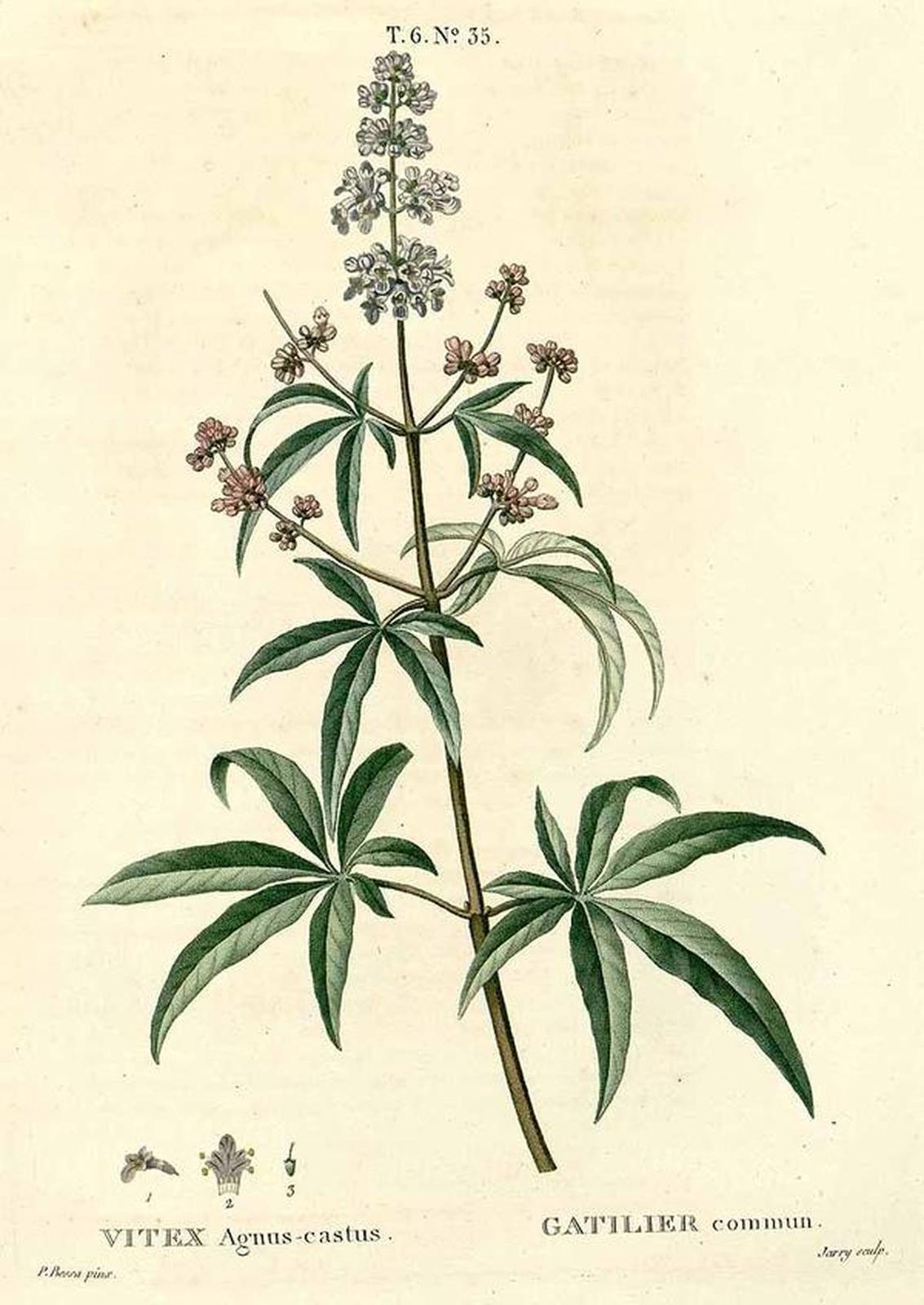Vitex agnus-castus L.
VerbenaceaeCrece en estado silvestre en tierras ribereñas del mediterráneo y en Asia occidental. La madera es basta y de color amarillo, las flores violetas y sus semillas, contienen un aceite de olor característico. Según Dioscórides, botánico griego del siglo I bien conocido por los andalusíes, a su peculiar aceite se le atribuían propiedades antiafrodisíacas, de hecho, las atenienses que participaban en las tesmoforías, fiestas en honor a Deméter, utilizaban las flores de esta planta para adornarse y las hojas para preservar la castidad. Precisamente, de aquí deriva su nombre, que significa casto: agnus proviene del griego a negación y gonos gónada, órgano reproductor o descendencia, así como del latín castus. Esta creencia favoreció su uso como aderezo en la cocina de los monasterios y conventos de la ribera mediterránea, donde sustituía a la pimienta con el deseo de promover el celibato. Esta circunstancia fomento, a su vez, la presencia de dicha planta en los jardines y claustros de estos complejos, de los cuales hasta 80 llegaron a congregarse en la Sevilla del s. XVIII.
Procedencia
Europeo/MediterráneoCalendario
Hábitat
Morfología
 Planta
Planta
 Ovoidal
Ovoidal
 Simple
Simple
 Digitada
Digitada
 Lanceolada
Lanceolada
 Opuesta
Opuesta
 Entero
Entero
 Sagitada
Sagitada
 Hastada
Hastada
 Agudo
Agudo
 Caduco
Caduco
